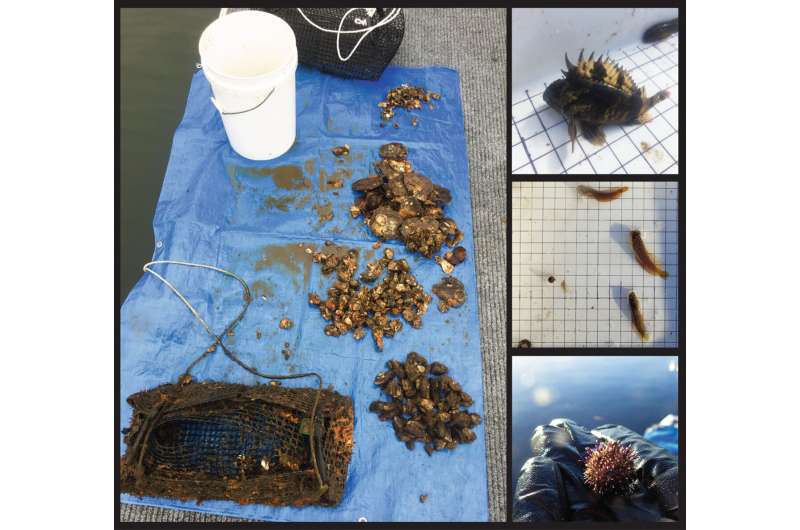Citizen scientists tend oyster gardens

Australia’s first “oyster gardening” project has shown the practice benefits the environment and could be an easy way for citizen scientists to improve marine environments.
Dr. Lisa Boström-Einarsson is an Adjunct Senior Research Fellow at James Cook University. She said oyster gardening is a community-driven activity where oysters are grown in cages hanging off docks, pontoons or other coastal infrastructure.
“Oyster reefs are severely threatened, with over 85% of reefs lost globally. In Australia, we’ve seen a loss of 90% of the two primary reef building species—the Sydney rock oyster and the Australian flat oyster,” said Dr. Boström-Einarsson .
She said oyster gardening could provide adult oysters for restoration programs, supply habitat for fishes and invertebrates, and improve local water clarity and nutrient cycling.
“We gave 30 households in the canal estate on Bribie Island in Moreton Bay two types of oyster gardens (small plastic mesh cages) each. These were deployed off their floating pontoons. One of the cages contained Sydney rock oysters only and one contained a mixture of Sydney rock oysters, leaf oysters and hairy mussels,” said co-author Dr. Ben Diggles, who led the oyster gardening project.
He said after a year the scientists found the cages supported a diverse range of invertebrates and fishes.
“It’s likely oyster gardens provide shelter from predators and a food source supplied by associated invertebrate and fouling communities.
“Oyster gardens in canal estates provide islands of structural complexity with high surface area, similar to historical oyster reefs,” said Dr. Diggles.
He said the cages containing the mix of three oyster species supported a higher abundance and species richness of both invertebrates and fish than the cages solely containing Sydney rock oysters.
“The study indicates that oyster gardening presents a great opportunity for people to get involved in citizen science. Australia has the greatest expanse of residential canal estates in the world.
“Oyster gardening is ideally suited to citizen science, and it’s a great way to increase the habitat value of artificial ecosystems such as canal estates,” said Dr. Diggles.
The paper is published in the journal Ecological Management & Restoration.
More information:
Lisa Boström‐Einarsson et al, An ecological assessment of Australia’s first community oyster gardens, Ecological Management & Restoration (2023). DOI: 10.1111/emr.12565
Citation:
Citizen scientists tend oyster gardens (2023, February 10)
retrieved 10 February 2023
from https://phys.org/news/2023-02-citizen-scientists-tend-oyster-gardens.html
This document is subject to copyright. Apart from any fair dealing for the purpose of private study or research, no
part may be reproduced without the written permission. The content is provided for information purposes only.
For all the latest Science News Click Here
For the latest news and updates, follow us on Google News.

